 Petzlover
Petzlover Both American Bobtail and Domestic Longhaired Cat are originated from United States. Both American Bobtail and Domestic Longhaired Cat are having almost same weight. Both American Bobtail and Domestic Longhaired Cat has same life span. Both American Bobtail and Domestic Longhaired Cat has same litter size. Both American Bobtail and Domestic Longhaired Cat requires Moderate Maintenance.
Both American Bobtail and Domestic Longhaired Cat are originated from United States. Both American Bobtail and Domestic Longhaired Cat are having almost same weight. Both American Bobtail and Domestic Longhaired Cat has same life span. Both American Bobtail and Domestic Longhaired Cat has same litter size. Both American Bobtail and Domestic Longhaired Cat requires Moderate Maintenance.
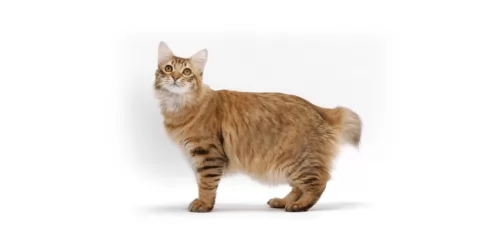 Bobtailed cats have a naturally shortened tail due to natural genetic mutation. The cat’s original appearance genetics were modified so as to bring about an improved strain that comes in all colors and coat types.
Bobtailed cats have a naturally shortened tail due to natural genetic mutation. The cat’s original appearance genetics were modified so as to bring about an improved strain that comes in all colors and coat types.
The cat descended from a short-tailed kitten, Yodi. His kittens also had a short tail. Two women selectively bred the cats to be large and strong with a wild look but with a pleasant nature.
The cats used in the development of the breed were domestic shorthairs and longhairs. They are now pedigreed cats without tails.
In 1989, the International Cat Association accepted the American Bobtail into its new breed category, giving it full recognition in 2002. They were accepted for registration by the Cat Fanciers’ Association in 2000. This is the world's biggest registry of pedigreed cats.
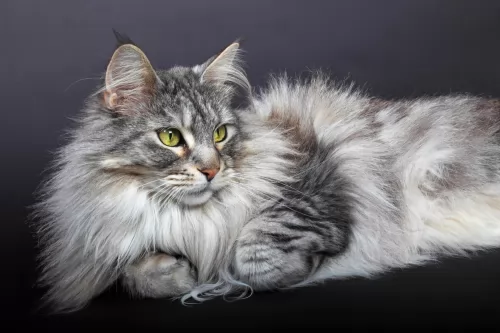 The Domestic Longhaired cat came about because of various attempts by breeders to bring in certain Persian cat varieties in the American Shorthairs.
The Domestic Longhaired cat came about because of various attempts by breeders to bring in certain Persian cat varieties in the American Shorthairs.
The cat comes from champion bloodlines but one of the most remarkable traits of the Domestic Longhair cat is that they are just typical cats with long hair. In other words, Domestic Longhairs are a product of various cat breedings and it is thought they arrived in the USA with the early settlers.
They shouldn’t be confused with the purebred American Longhair cat. The ancestry of the Domestic Longhair cat is unknown but for people who own them, they are a longhaired cat that becomes special to their owners. The cat isn’t recognized by the larger cat organizations.
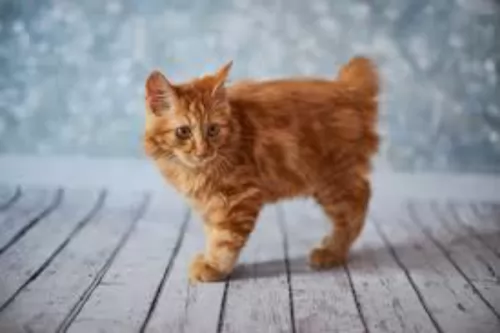 The American Bobtail is a cat that came about in the 1960s. It is well know as the cat with a bobbed tail. It’s not as vocal as many other cat breeds. It’s not a slender cat but is sturdy and and strong weighing between 3 and 7kg. Their double coats can be short- or long-haired. The coat comes in different patterns and colors, including orange, cream, black, brown, chocolate etc with a shaggy texture. He sheds quite a bit. The body of the American Bobtail is faily long. Its ears are medium-sized and wide-based with rounded tips, the eyes are almond shape. The eyes can be gold, yellow, green or blue. What is interesting is that the hind legs are much longer than the fore legs, and the feet are round.
The American Bobtail is a cat that came about in the 1960s. It is well know as the cat with a bobbed tail. It’s not as vocal as many other cat breeds. It’s not a slender cat but is sturdy and and strong weighing between 3 and 7kg. Their double coats can be short- or long-haired. The coat comes in different patterns and colors, including orange, cream, black, brown, chocolate etc with a shaggy texture. He sheds quite a bit. The body of the American Bobtail is faily long. Its ears are medium-sized and wide-based with rounded tips, the eyes are almond shape. The eyes can be gold, yellow, green or blue. What is interesting is that the hind legs are much longer than the fore legs, and the feet are round.
Bobtails are friendly cats, enjoying being in the company of their human family as well as with strangers. They are loving and affectionate to the entire family as opposed to just one person.
They’re quiet cats but will chirp when happy and excited. They get on well with all members of their human family and that includes children and the dogs.
They’re intelligent cats too and they can be taught to walk on a leash and to also perform some tricks. There are some people who say that their Bobtails act more like dogs than cats. These cats are sensitive and can sense when their owners are happy or sad and will come and sit with you when you're feeling sad and alone.
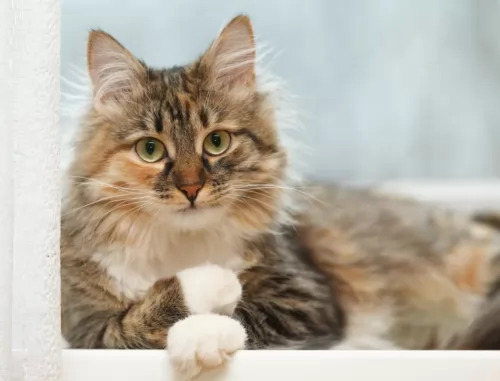 These Domestic long-haired cats are hugely popular in the United States. They can be of any color and the coat can have different patterns too, including bi-color, tortoiseshell and tabby.
These Domestic long-haired cats are hugely popular in the United States. They can be of any color and the coat can have different patterns too, including bi-color, tortoiseshell and tabby.
With his muscled, athletic body he can weigh between 3 and 6kg. He can have a variety of eye colors, ear sizes, and shapes Essentially, their size and shape is influenced by the breed that dominates.
These are just your regular, balanced cats and they make splendid pets for first-time cat owners, single pet owners, those with kids in the home and seniors. You can’t really tell how their personality will be and some will be more quiet than others and some more loving than others too. A lot depends on how you raise- and socialize your cat.
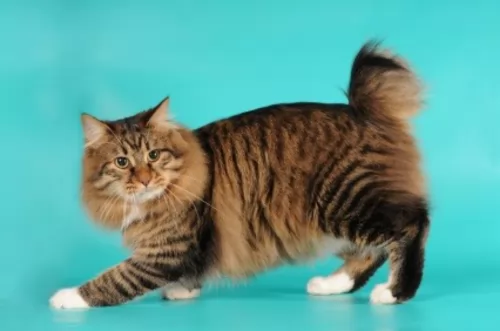 Many people want a dog as a pet but aren’t able to keep one and then the American Bobtail becomes the ideal alternative. These cats aren’t known for their solitary personalities like the many other cats there are and they genuinely love to spend time with their human family. Some will even behave like a dog and be there to meet you at the door when you arrive home.
Many people want a dog as a pet but aren’t able to keep one and then the American Bobtail becomes the ideal alternative. These cats aren’t known for their solitary personalities like the many other cats there are and they genuinely love to spend time with their human family. Some will even behave like a dog and be there to meet you at the door when you arrive home.
He is a fairly large, amicable cat and is affectionate and adaptable to your lifestyle. He enjoys all kinds of lifestyles and loves to curl up next to you on your travels, being the perfect road trip companion.
The American Bobtail is a therapeutic cat and is sensitive to the moods of its human family. He gets on well with children and other pets in the family and just wants to be a family member.
By bringing an American Bobtail into your home and your heart, you’ll have discovered the most wonderful feline companion there is.
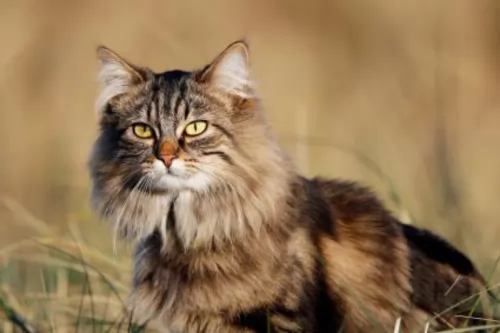 Domestic Longhairs are such wonderful cats and slot into a host of different lifestyles.
Domestic Longhairs are such wonderful cats and slot into a host of different lifestyles.
They are generally content cats with the different lifestyles they find themselves in. Some are smart, some playful, some quiet and some naughty, some are very vocal and some are content to be lap cats.
They're all different but they all have needs and concerns – to be part of a loving human family and to be treated with love, care and respect for the companionship they offer.
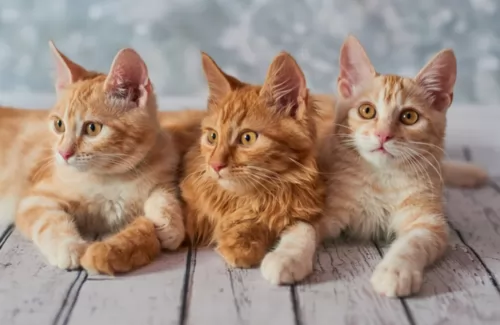 When you buy a kitten from a breeder, always do research on the breeder so as to avoid a host of health issues down the line.
When you buy a kitten from a breeder, always do research on the breeder so as to avoid a host of health issues down the line.
Apart from the typical cat health problems, the Bobtail is a healthy breed of cat. With proper care from you at home as well as veterinary care, these interesting looking cats can live up to anything between 12 and 20 years.
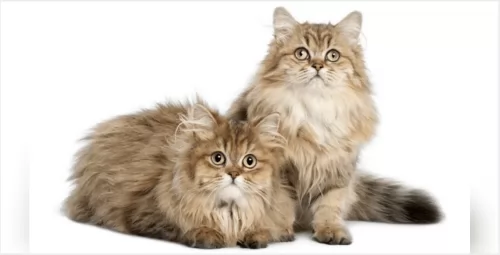 It is their mixed breeding that ensures that the Domestic Longhaired cat doesn’t have any health issues. Like any cat, things such as arthritis, cancer, diabetes and kidney disease can plague your cat.
It is their mixed breeding that ensures that the Domestic Longhaired cat doesn’t have any health issues. Like any cat, things such as arthritis, cancer, diabetes and kidney disease can plague your cat.
A good diet, exercise, lots of love and care can all help to ensure your kitty kat doesn’t succumb to anything that your vet can’t handle.
As soon as your cat shows any sign of illness, get him to the vet. If you look after your cat well, he can avoid a lot of vet visits and can reach 15 to 20 years of age.
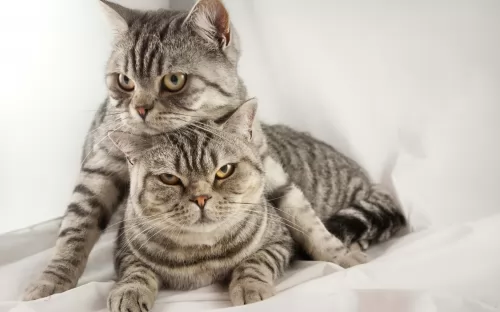 Keep a close eye on your cat’s weight.
Keep a close eye on your cat’s weight.
Keep the litter box of your Bobtail scrupulously clean.
Your American Bobtail needs the best quality food there is full of vitamins and minerals if he is to remain healthy. The cat’s diet will depend a lot on his activity levels and general health, but it should always be high protein food. Your vet will always help you with some guidelines on feeding your cat.
Every cat needs exercise, and even though these cats aren’t as energetic as other cats, they are active indoors and out and are also playful. You will need to provide it with some puzzle toys and a climbing tree to keep him mentally and physically active.
Brush his medium-length fur twice a week to keep it shiny and silky.
Trim his nails carefully and check his eyes and inside his ears for abnormal discharges.
Vaccinate your cat to keep it protected from life-threatening cat diseases and take him to the vet immediately you suspect something is wrong.
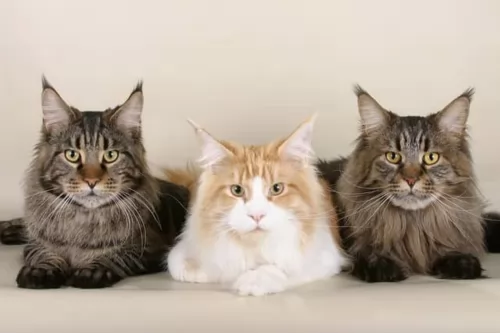 The hair of the Domestic Longhair will need to be tackled and you will need a firm brush to gently brush your cat once a week. This ensures the hair remains silky and tangle-free.
The hair of the Domestic Longhair will need to be tackled and you will need a firm brush to gently brush your cat once a week. This ensures the hair remains silky and tangle-free.
Remember, there are always professional cat groomers who specialize in grooming cats and ensuring their teeth, inside of ears, their nails and their fur is in tip-top condition.
Keeping your cat healthy is always going to require a trip to the vet. Your Domestic Longhair is going to require certain vaccines and deworming to ensure he remains free of deadly cat diseases. Also, if your cat is acting in a lethargic, ‘sick’ way, it could well be a sign that he is ill and a trip to the vet will be imperative as the condition could become worse.
To ensure your cat has the best chance at health, make sure you feed him well. Gut health is absolutely imperative and feeding your cat too many carbs will give him plenty of digestive problems.
A cat is a carnivore – a meat eater – and therefore his food needs to be meat. A kitten will require 4 small meals a day and an adult cat – over the age of 1 year – will require 2 meals a day. Any questions you have about feeding your cat can be answered by your local veterinarian.
Speak to your vet about spaying or neutering your Domestic Longhaired Cat as this will prevent unwanted kittens, particularly if your cat is allowed outdoors and wanders off.
Also, neutering and spaying have a host of health benefits for your cat and it also improves their personality.